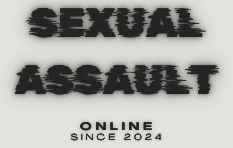To increase awareness of child exploitation throughout Hampshire and the Isle of Wight, the Police and Crime Commissioner, Donna Jones, has revived the annual Is Your Child Safe? Campaign.
With the Office of the Police and Crime Commissioner’s Violence Reduction Unit, Hampshire County Council, Isle of Wight Council, Portsmouth City Council and Southampton City Council, the push to assist parents, guardians and caregivers in identifying the warning signals is underlined.
How should one identify indicators of child exploitation?
Over the summer, the campaign provides guidance on identifying the indicators of child exploitation, what to do and where to obtain help.
PCC Donna Jones remarked,
“Today, child exploitation occurs on the Isle of Wight and in Hampshire. Though subtle, the clues point clearly when a child is being groomed for criminal or sexual exploitation.
“We all have to know what exploitation looks like, how to prevent it from happening, how to get advice and how to support children who become the victims of criminalisation and abuse.”
Describes child exploitation.
Child exploitation is the practice of people or groups forcing, controlling, or misleading a child into performing what they want in return for something the youngster needs or wants. This can cover the youngster being pushed into having sex or other crimes like carrying and distributing drugs or cash for a gang.
Usually young adults or older children, these people provide the child money, drugs, toys, protection, companionship, love or affection to build trust. They could also make threats and employ physical assault. Involving grooming, this is sometimes known as Child Criminal Exploitation (CCE) or Child Sexual Exploitation (CSE).
3,013 youngsters reported missing to Hampshire and Isle of Wight Constabulary
Children who go missing are far more susceptible to exploitation, and it is usually the most typical indication that something is not correct. From July 2023 to June 2024, 3013 children were recorded missing to Hampshire and Isle of Wight Constabulary in the past 12 months. Many of these youngsters vanished multiple times.
PCC Donna Jones followed up:
“It gives me great pleasure to be starting our kid safety campaign once more in cooperation this summer. Over our two counties, child exploitation runs underground. Children typically lack awareness that these individuals are not friends, so we have a shared responsibility to safeguard them.
Jim Pegler, director of the Hampshire and Isle of Wight Violence Reduction Unit, said,
Robust data indicates that youngsters who have trustworthy and positive adult role models are less prone to be taken advantage of into criminal activity or violence. Most local authorities provide internet tools listing summertime events to ensure those looking after children have choices, allowing them to keep their youngsters safe.
Look for the indicators.
- Often disappearing or arriving home late
- progressively reserved
- Suddenly, finding an older buddy group or boyfriend/girlfriend
- sudden friendship change
- Getting home under the effect of drugs or alcohol
- Unanswered injuries
- STDs or pregnancy/terminations
- Getting into problems in the neighbourhood or the school
- Suddenly, owning pricey clothes, trainers, money, priceless objects
- Requesting money for the usually high demand for it
- I’m getting plenty of texts and phone calls.
- Burner phones, sometimes known as many phones
- sudden passion in gang culture/drill music or another kind of music you don’t know anything about
- Language changes: usage of urban slang or drug dealing-associated words
- Carrying firearms, balaclavas, gadgets, hidden bags or tiny weighing scales connected to criminal activity
What can I do about it?
- Ask enquiries and listen without passing judgement. Youngsters must understand they can communicate without thinking about their parents being cross-wise and agitated.
- Please pay close attention to their actions. Many children indicate their concerns about how they behave but cannot express them.
- Find out their buddies. Ask about fresh friendships and be alert of any secrets about these.
- Make sure someone in a car picks up your child; find out who they are and where they are heading, then note as much information as possible.
- Should your youngster go alone on a train or bus, review their ticket and know the route and destination.
- Check their phone and internet activity to show a genuine interest in their online life.
- Please discuss the websites they view and why, then use online security settings.
- Seek assistance.
- See the help accessible in your area by visiting www.isyourchildsafe.org.
If you or anyone you know have been affected by the people highlighted in this article, then please report those individuals to the Police on 101 (999 if an emergency) or visit their online resources for further details of the options for reporting a crime. You can also make a report at Crimestoppers should you wish to be completely anonymous. There is help available on our support links page.

